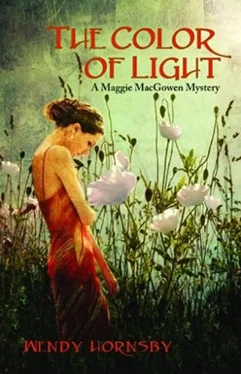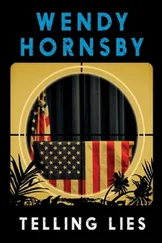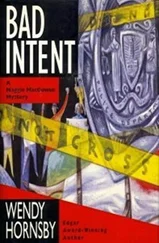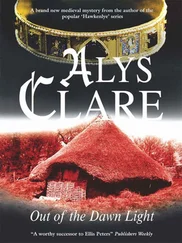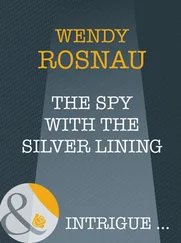“Gracie seems to think you were her closest friend, Mom. But I don’t remember that.”
“I don’t know that I was her closest friend, but we did spend quite a lot of time together.”
“Working with refugees?”
“That, and before,” she said. “Your dad and I met the Bartolinis at church when they first moved in; you kids were just toddlers. Bart told your dad that Trinh felt out of place, very lonely, didn’t speak the language. I helped her enroll in English classes at the community college and invited her to bring Beto to the parish playgroup with us. She met the other mothers, Beto met the other kids. We went to Father John’s scripture study together.”
“I thought Mrs. B was Buddhist.”
“Culturally, privately she was,” Mom said. “But nominally she was Catholic. For very practical reasons, when Vietnam was under French rule Trinh’s grandfather, who was a highly placed bureaucrat, had the family baptized. He sent his daughters to be educated by French nuns just as his grandfather had sent his sons to study with Mandarin scholars. The survivors adapt, don’t they?”
“I remember Father John giving a blessing at the Bartolinis’ Hungry Ghosts celebration every summer. And I also remember him standing back when the hungry ghosts were offered bribes to stay away.”
Mom laughed. “A man has his limits.”
“You’re missing the hungry ghosts this weekend,” I said.
“Probably for the best,” she said. “Bart seems to think I’ve already passed over into the next realm. God only knows what the man might do if I showed up in the flesh. Honey, you’ll have to burn offerings on my behalf this time.”
“For any ghost in particular?” I asked.
I heard what sounded like a stifled sob and wished I could unsay that careless remark. Of course, I thought, there was someone in particular she wanted remembered: my dad.
“Sorry, Mom. A dumb thing to say.”
“No. It wasn’t.”
She took a deep breath and what she told me next was not at all what I expected.
“Margot, people assume that Trinh became dependent on me because I reached out to her. But the opposite was true. I needed her help more than she ever needed mine.”
I never thought about Mom needing help from anyone. She always seemed so competent in everything she undertook. So in charge. Curious, I asked, “What did you need her help with?”
“Where to begin?” She took a moment to decide that before she began to tell me. I leaned back, looked across the yard that had given her and Dad so much happiness, and listened.
“You know, dear, that your father and I were deeply opposed when your brother, Mark, enlisted in the army with the intention of serving in Vietnam.” I was very young, but I would never forget the night Mark dropped that bombshell on our peacenik parents. “When Mark was killed over there, I was so angry and so bereft that your father began to worry about my sanity. I was ready to go to Washington to take out that huddle of sanctimonious old bastards who perpetrated the damn war.”
“I remember, Mom,” I said. “But you worked your way through it, you came back to us.”
“Thanks in no small part to Trinh,” she said. “My son died in a place I knew nothing about, among strangers. We received a flag-draped coffin with about twenty pounds of scorched flesh and bone sealed in a plastic bag with a new uniform, neatly folded, inside. But most of my boy was still in a jungle, unburied, unidentified. If I could have, I would have gone over there and found him and brought him home.
“Father John took me by the hand and walked me down to Trinh’s house. He asked her to describe Mark’s resting place for me, to tell me all about the people who were around him. And she did; she was wonderful. She told me about her own family and what the war had done to them. It was helpful, but it wasn’t until later, when the war collapsed that I was able to put my grief in perspective and get on with life.”
“Why?”
“The floodtide of people who came in,” she said. “Do you remember?”
“You brought a family home with you. I remember sharing my clothes.”
“Most of the families in the parish took in a refugee family that summer,” she said with a laugh. “That was Father John’s doing: ‘Say three Hail Marys, take in a family and sin no more.’”
“Sounds like Father John,” I said.
“Yes. But what Trinh did was far more important,” she said. “She took me with her to the refugee camp in the Presidio-a huge tent city. There were so few services, and so many people who came over here with nothing. We were able to help, to really help. It was the best therapy in the world for me. I couldn’t do anything for Mark, but I had something to offer people who got snagged in the same fuckup.”
“Language, Mom.”
She laughed.
I said, “Mr. B told me that some people took out their anger about Vietnam on his wife.”
“Some people are idiots,” she said. “Even among the refugees Trinh helped there were people who resented her for the comforts of her life, or for who her father was or was not. Some people need enemies.”
“Did she have enemies?”
“Trinh? I wouldn’t think so. But she may have inherited a few. You know, dear, the sins of the fathers…”
“Ouch,” I said.
“Which reminds me.” She went through a list of instructions for disposing of Dad’s research notes. She finished with a non sequitur: “Did you know that Father John is back in the parish again?”
“I heard.”
“He’ll probably say a blessing at the Bartolinis’ party Saturday. Just to be on the safe side, will you ask him to say a rosary for your brother?”
“Sure.” I started to say she could ask him herself. Instead, I asked, “Mom, what happened between you and Father John?”
“The right to choose.”
That was explanation enough.
“Gracie said something about your piano.”
“Yes.” She suddenly sounded enthusiastic. “I want to ship it to Ricardo’s studio instead of your house.”
“Sure.” Ricardo, my former roommate’s father-in-law, was a retired high school music teacher. When his son and daughter-in-law, Roger and Kate, built their home in a canyon near my own home, they also built two casitas-little houses-one for Roger’s parents and another for his grown children from his first marriage. Out of self-defense, Kate and Roger had added a sound-proofed music studio at the back of their property for Ricardo, whose music indeed made a joyful noise. I asked Mom, “What’s up?”
“I told you how much fun I had teaching Ricardo’s piano students when he and Linda were out of town.”
“You did,” I said. “Are you planning to take on students of your own?”
“Just a few, yes,” she said. “Ricardo offered me the use of his studio; we’ll work out a schedule. But beyond that, dear, Kate and Roger made me an offer that I did not refuse.”
“Should I be worried?”
“No, not all. In fact, the opposite,” she said. “Margot, Kate and Roger offered me the second casita.”
“For piano lessons?”
“No, dear, to live in.”
“Good God,” I said. “Gracie will think you’ve been sucked into a cult.”
“If I have, it’s a lovely one,” she said, laughing. “And now, dear, you won’t have to worry about me being alone. I know that the reason you have resisted starting your film project about Isabelle’s family is that you did not want to leave me alone while you were off shooting in Normandy.”
“The reason I haven’t started the film is that the network has not approved funding.”
“Then call your Uncle Max and have him light a fire under those network people as he always does. And go to Normandy. I know it’s what you want to do.”
Читать дальше
